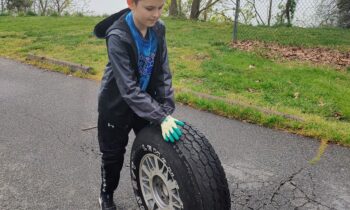A Prescription for Drug Disposal
National Prescription Drug Take-Back Day April 26th
The last time you went to the medicine cabinet in search of aspirin, did you find bottle filled with old prescriptions and unused medicine? Did some of them expire before your children were born? You’re not alone.
Just throw them away, right? Wrong! There’s a lot to think about when disposing of unused, unwanted medicine and prescriptions. Proper disposal keeps these drugs out of reach of children, pets and anyone else not given that prescription. It also helps keep our water supply and environment safe.
Some bottles and packages tell you how to dispose of your prescription and over-the-counter medicines. If they don’t, here are some safe options:
- Take-back programs – This is the best thing you can do. Take-back programs are often organized by hospitals, towns or cities, and sometimes law enforcement. They are usually announced in local newspapers or on local government websites. Once the pills and other medications are collected, officials properly dispose of the drugs and you don’t have to worry about a thing! National Prescription Drug Take-Back Day will be held Saturday, April 26, 2014. For locations go to www.deadiversion.usdoj.gov/drug_disposal/takeback/
- Tossing medications at home – You can dispose of medicines on your own if there are no take-back programs near your home. But do not just throw them in the trash can. Medical experts suggest that you put the medications in a plastic zipper bag and then combine them with something like coffee grounds or kitty litter. That way, should someone snoop through your garbage, all they will find is a bag of unwanted garbage.
- Cross out any ID information – If you are disposing of prescription containers, be sure to remove the label and cross out your name, address, and the prescription number.
- DON’T FLUSH THEM! – At one time, this was the preferred way to dispose of medications. But now, some studies have found prescription and over-the-counter medications showing up in local ponds, rivers, and even drinking water supplies. Unless the medicine container specifically tells you to flush the unused portion down the drain, find another way.
The Centers for Disease Control and Prevention says it is important to follow the expiration date on your medicine in order to assure its maximum effectiveness. And for the best shelf life, store all medications in a cool, dry place. However, nothing magical happens on that expiration date. Your doctor may tell you that the medication is still good shortly after that date. But if leg warmers were in style when the prescription was first filled, just toss it along with those leg warmers.
If you ever have questions about your unwanted medications, ask your doctor.



